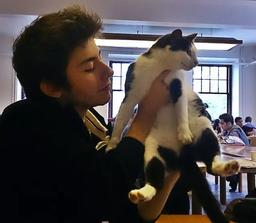There are three types of conditional sentences:
- Predictive conditionals
- Knowable conditions
- Universal conditional clauses
In these lessons, you're only going to learn the first two. Predictive conditionals refer to sentences that express a predictable relationship between two events. Such as occurence of one would lead to the other. (If I eat, I won't be hungry). Knowable conditions on the other hand are used to ask questions, make inferences and utter volitional sentences. (If you're not busy, may I ask a question?). As you can see English has the same form for these two functions, however Turkish varies the suffixes and the order of suffixes it uses.
Let us start with the predictive conditionals. As said above, predictive conditional sentences convey that if the first event happens, the second one will follow. These two events can happen at any time; future, past, present or mixed! For example, the conditional sentence might indicate something happening in the past, and the resulting event might happen in future. Predictive conditional sentences are constructed with the following:
- -(y)sE : Conditional copula (almost always combined with aorist)
- -sEyDİ : Conditional suffix plus past copula
- -sEymİş : Conditional suffix plus evidential copula
You have not learnt about the evidential copula, so no need to worry yourself about it. You will just learn the first two, and in this lesson, the first.
Predictive Conditionals
Aorist + -(y)sE
This is the most common way to make conditionals. Example: yap-ar-sa-m. Conditionals with aorist have three sub-classes in itself:
- Open: The events described in the conditional and the main clause both happen in the future.
- Generic: The events described in the conditional and the main clause are about characteristics of a group.
- Habitual: The events described in the conditional and the main clause happen on a regular basis.
Open conditionals
In open conditionals, we talk about things happening in the future. The conditional clause is conjugated with aorist plus conditional copula, and the main clause can be anything non-past (e.g. imperative, optative, continuous, aorist etc.). Let's see some examples:
| Suyu ısıtırsan kaynar. | If you heat water up, it boils. |
| Yağmur yağarsa maçı erteleyeceğiz. | If it rains, we will postpone the match. |
| Kazanırsan kutlayalım! | If you win, let's celebrate! |
This is a loaded subject, don't be discouraged if you don't get it the first time. Read it again, practice again, and never give up!

